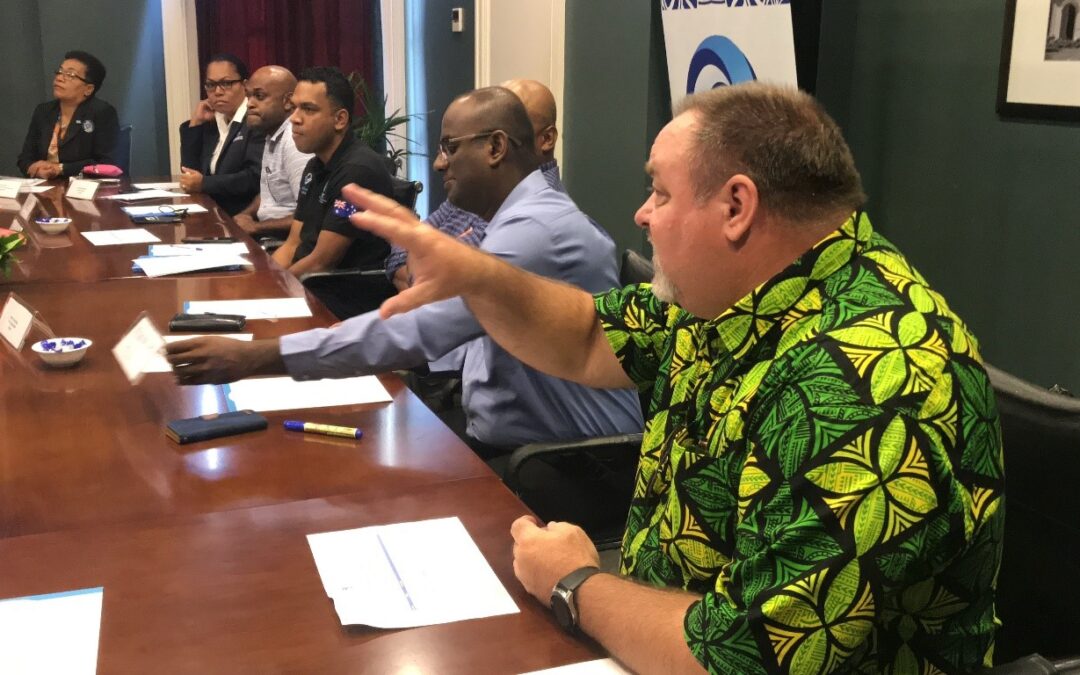
OCO Head of Secretariat, Richard Brennan makes a point during the training
Suva, Fiji, 16th March, 2021- Through the Australia Pacific Security College (APSC), the region’s law enforcement agencies- Customs, Police and Immigration- are working to improve their communication and networking processes to combat transnational crimes, which continue to increase in the Pacific region.
The agencies’ regional bodies, the Pacific Islands Chiefs of Police (PICP), Pacific Immigration Development Community (PIDC), Pacific Transnational Crime Centre (PTCCC) and the Oceania Customs Organisation (OCO) conducted a joint-pilot exercise on operation command with 26 participants from Fiji, Samoa and Solomon Islands.
The exercise looked at how law enforcement agencies cooperate, how they share information, and how they work with other parts of government to deliver security outcomes.
This included leadership and collaboration in a multiagency context, the role of, and requirement for, analysis, and Risk management.
The exercise was facilitated in person in each of the countries, encouraging cross-agency collaboration and nationally-relevant decision-making. Its design incorporated the expertise of participants, topical issues in the region and reflected realities in the Pacific.
The jurisdictional responsibilities of each agency represented were also explored and existing sources of information and data were identified and discussed to help the agencies understand the challenges they all faced individually.
In addition, information sharing pathways and arrangements were identified and tested while management decision-making points and operational command and control arrangements were identified and tested.
Facilitators were strategically chosen in each site with OCO hosting and facilitating in Fiji, PIDC/PTCCC in Samoa, PICP in the Solomon Islands and APSC providing the oversight. Over two days, all countries worked together, connecting over Zoom, messaging each other and using shared secure systems.
The Australia Pacific Security College was delighted to partner with the regional law enforcement agencies to deliver the two-day exercise.
“These scenario exercises allow security professionals to hone their skills and build networks that will enable effective collaborations to combat transnational crime,” Jay Caldwell, Deputy Director Education of the College stated.
OCO Head of Secretariat, Richard Brennan said the success of operations against transnational crimes depended on the effectiveness of communication between agencies nationally and in the region.
“A nation’s limitations of knowledge, skills and technology impair the Pacific’s strength to combat such infiltration,” Mr Brennan says.
“However, with solidarity and cooperation amongst the regional and national law enforcement agencies and its neighboring allies, it is envisaged that a collaborative approach will ease the efforts and displace the inabilities of the members to counter the threats.
“Improving information sharing and communication processes would enhance regional law enforcement agencies ability to better target potential threats staged by transnational crime.” In the scheme of things we are supporting the call by our leaders for Regional Security through the Boe Declaration.
ENDS
For more information or for any queries, please contact the Secretariat or email: mediaoco@ocosec.org
